Dealing with Polyuria in Whiteface Yellow Cockatiel: An Urgent Guide for Owners
Polyuria, a condition causing excessive urination in birds, can be alarming for Yellow Cockatiel owners. This guide offers crucial insights on symptoms, causes, and effective treatments.
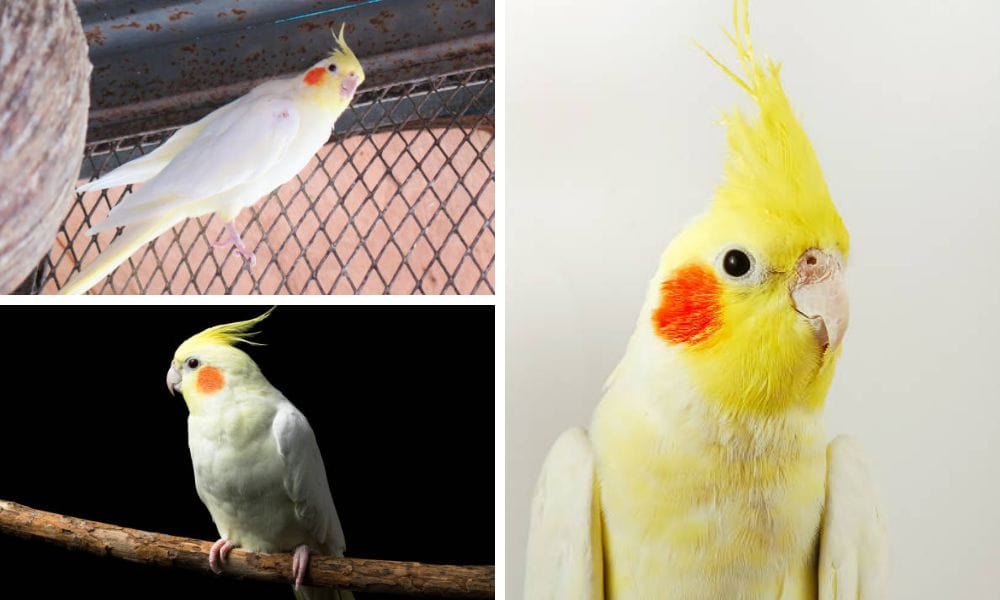
Key Takeaways:
- Understand what polyuria is and how it affects your yellow cockatiel.
- Learn the signs to watch for and the steps to take if your cockatiel is experiencing polyuria.
- Discover how to prevent polyuria and maintain the health of your whiteface yellow cockatiel.
Cockatiels, with their bright yellow feathers and cheerful dispositions, are among the most beloved pet birds in the aviculture world. The whiteface yellow cockatiel, a second cockatiel mutation, is particularly striking with its yellow face and prominent white flashes. However, owning these beautiful pet birds comes with a responsibility to recognize and address health issues, such as polyuria. This condition can be alarming for owners, but with the right knowledge, you can take swift action to ensure the well-being of your feathered friend.
What is Polyuria in Cockatiels?
Polyuria is a condition where a bird, such as a yellow cockatiel or a male lutino cockatiel, produces more urine than normal. This can lead to watery droppings and can be a sign of underlying health issues. It's important to differentiate between polyuria and diarrhea, as the latter involves an increase in both urine and feces. Polyuria in cockatiels can be caused by a variety of factors, including diet, infection, or even stress.
Recognizing the Signs of Polyuria
The first step in dealing with polyuria in your cockatiel is to recognize the signs. You may notice that the droppings of your gorgeous lutino cockatiel have become more liquid or that there's an increase in the volume of urine. The area around the vent may appear wetter than usual. If you observe these symptoms in your male and female cockatiels, it's crucial to take action quickly.
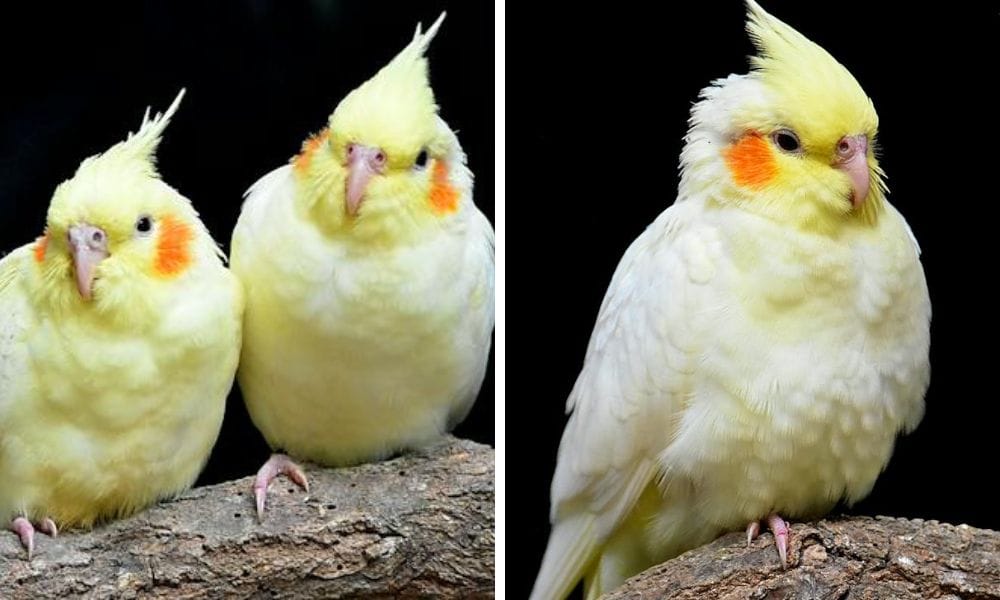
The Importance of a Proper Diet
Diet plays a significant role in the health of your cockatiel. A balanced diet that includes pellets, seeds, and fresh fruits and vegetables can help prevent polyuria. Avoid feeding your cinnamon cockatiel or female pearl cockatiel foods that are high in water content, as this can contribute to the condition. Instead, focus on providing a diet that supports their overall health and reduces the risk of polyuria.
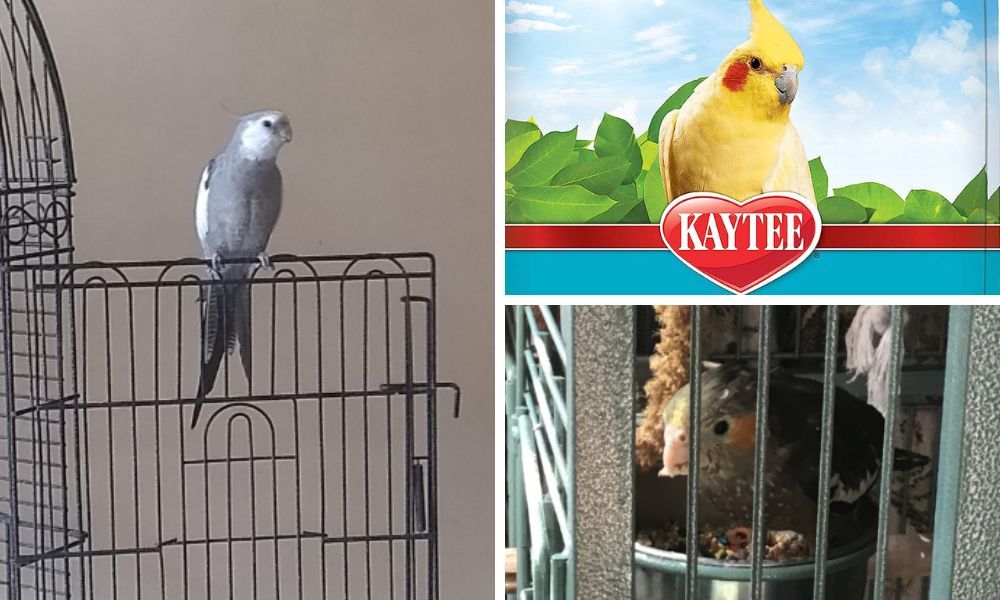
Hydration and Its Role
While it's important to monitor the water intake of your cockatiel to prevent polyuria, proper hydration is still crucial. Ensure that your pet bird has access to clean, fresh water at all times. A dehydrated cockatiel can suffer from health issues just as severe as those caused by polyuria. Monitor the water levels in the bird cage to ensure your cockatiel is drinking adequately.
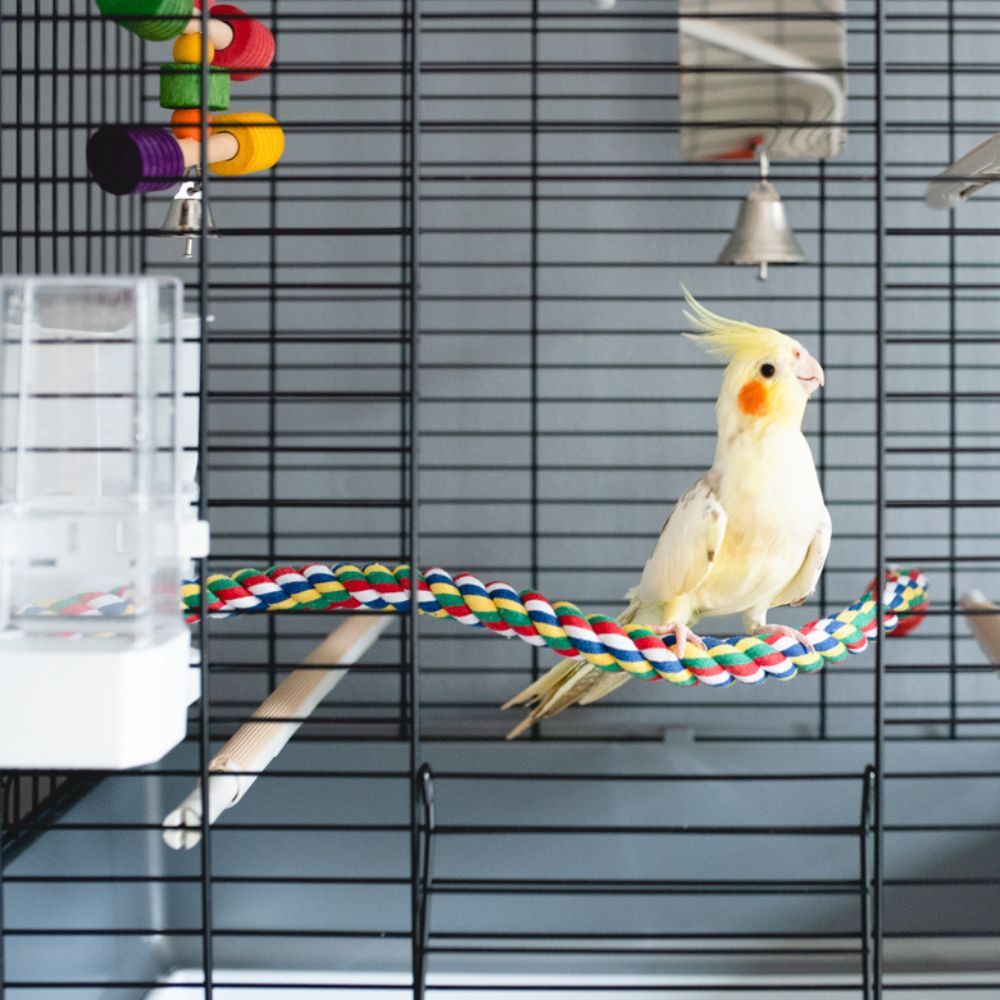
The Impact of Stress on Cockatiels
Stress can be a significant factor in the development of polyuria in cockatiels. Changes in the environment, such as moving the bird cage or introducing a new pet, can lead to stress-induced polyuria. It's essential to create a stable and comfortable environment for your cockatiel, minimizing disruptions and providing a sense of security.

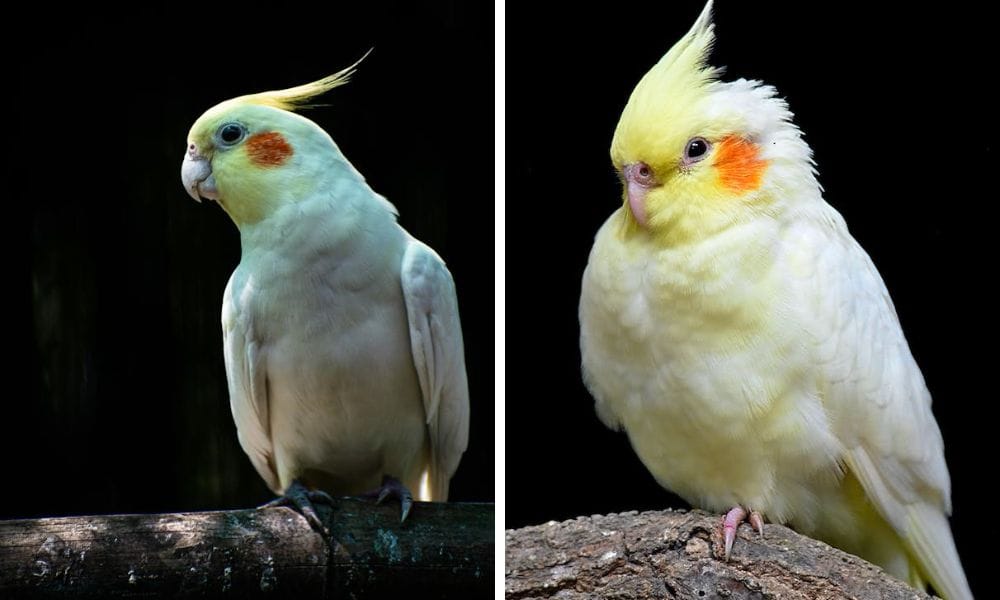
When to Seek Veterinary Care
If you suspect your cockatiel is suffering from polyuria, it's important to seek veterinary care promptly. A vet can conduct tests to determine the cause of the condition and recommend a treatment plan. Early intervention can make a significant difference in the outcome for your pet bird.
Preventative Measures for Polyuria
Prevention is always better than cure when it comes to polyuria in cockatiels. Regular check-ups with an avian vet, a balanced diet, and a stress-free environment can help keep your cockatiel healthy. Be vigilant about any changes in your bird's behavior or droppings, as these can be early signs of polyuria.
Exploring the Colorful Varieties of Cockatiels
Cockatiels, scientifically known as Nymphicus hollandicus, are a cherished member of the parrot family and have become a beautiful pet bird in many households. The normal grey cockatiel, with its primarily grey feathers and bright orange cheek patches, is perhaps the most recognized. However, the cockatiel's plumage can vary significantly due to various color mutations. The lutino cockatiel is one such variety, boasting a stunning white to light yellow body with a contrasting yellow head and red eyes. This mutation is a sight to behold, with the absence of grey coloration giving them a yellowish tint that's both unique and captivating.
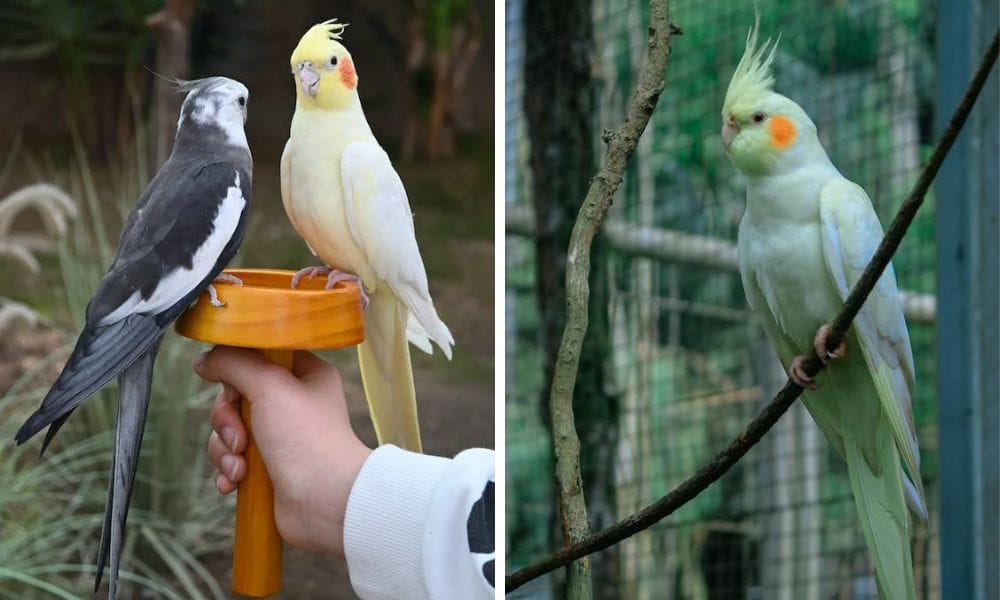
Male lutino cockatiels often have a brighter yellow crest and more vivid orange cheeks compared to females. The pied mutation, including the lutino pied, adds another layer of visual interest, with patches of different colors, such as light grey or white, appearing randomly across the body. The pearl pied variety, with its speckled appearance, and the albino, with its pure white feathers and red eyes, are other notable examples. Each breed, from the lutino pearl to the blue cockatiel, adds diversity to the cockatiel's already fascinating range of appearances. Their long tails and wings, often with markings on the outer edges, further accentuate their beauty and distinguish them from other birds in the animal world.
The Unique Traits of Male Cockatiels
When it comes to male cockatiels, they are not only known for their striking coloration but also for their behavioral traits. Male cockatiels are often more vocal and are known to talk cockatiels, mimicking sounds and even learning to whistle tunes. This ability to communicate through sound is more pronounced in males than in females and is a delightful trait that many owners cherish. The male cockatiel's tail feathers, which are longer and more dramatic than those of females, are used in courtship displays, adding to their charm and charisma.
Furthermore, the facial feathers covering the male cockatiel's bright orange cheek patches are usually more pronounced, making their faces one of the most distinctive features. Cliff Barringer, the founder of the Florida Parrot Jungle, noted that these birds could be quite the entertainers, with their playful antics and sociable nature. Whether it's the wild type with its light grey body and yellow crest or the more exotic lutino and pied mutations, male cockatiels have a special place in the cockatoo family and continue to be adored by bird enthusiasts around the world.
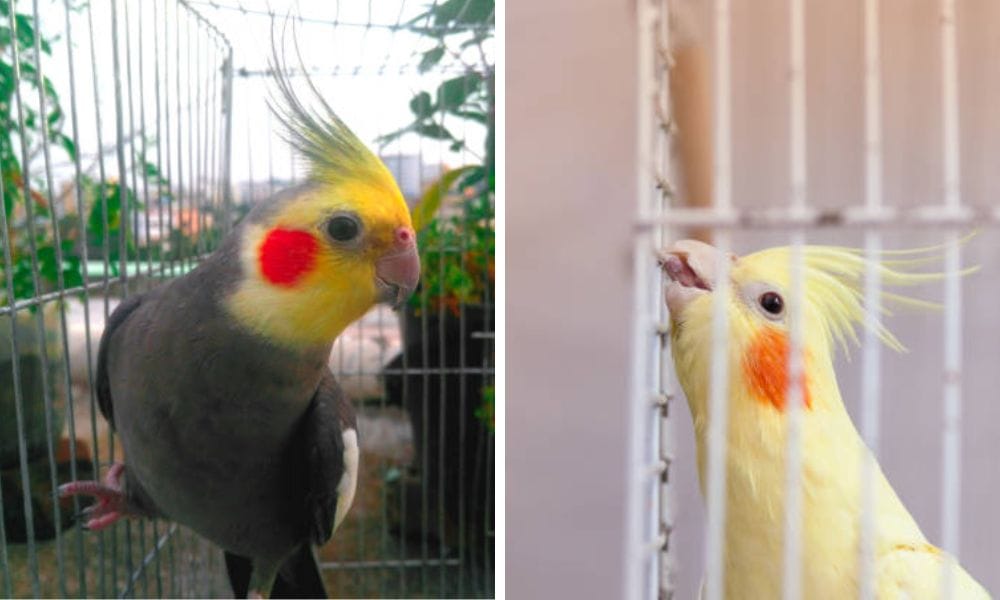
Understanding the Role of Genetics
Genetics can play a role in the health of your cockatiel. The lutino gene, for example, is responsible for the beautiful yellow and white plumage of lutino cockatiels. However, genetic factors can also predispose birds to certain health conditions, including polyuria. Be aware of your cockatiel's genetic background and discuss any concerns with your vet.
The Importance of a Clean Habitat
Maintaining a clean habitat is essential for preventing polyuria and other health issues in cockatiels. Regularly clean the bird cage, perches, and nest box to reduce the risk of infection. A clean environment will help keep your cockatiel healthy and reduce the chances of polyuria developing.
Monitoring Your Cockatiel's Behavior
Observing your cockatiel's behavior is key to early detection of polyuria. Changes in activity levels, appetite, or vocalizations can indicate that something is amiss. If your normally active and talkative cockatiel becomes lethargic or quiet, it may be time to investigate further.
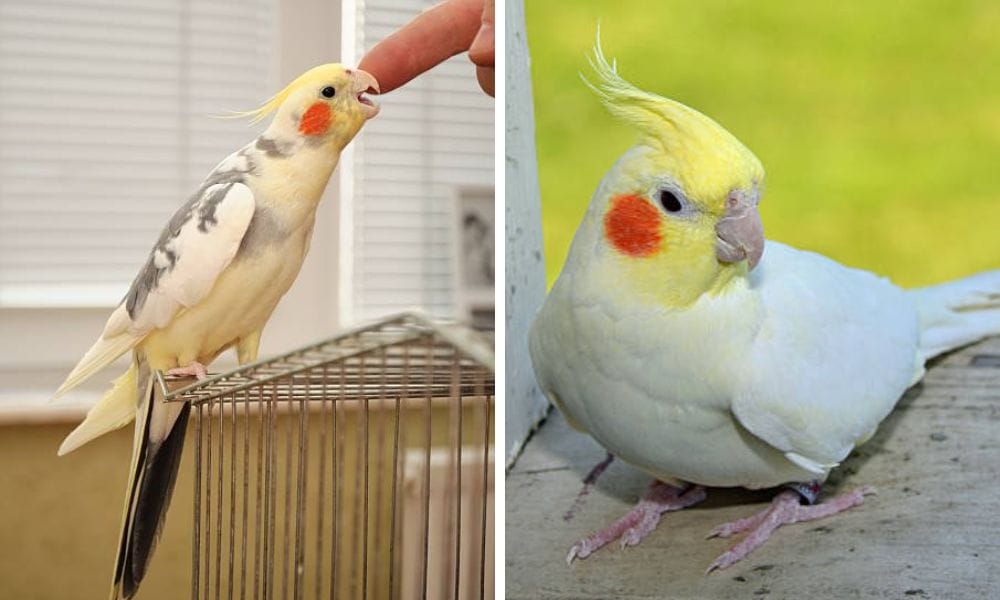
The Role of Supplements in Cockatiel Health
In some cases, dietary supplements can help support the health of your cockatiel and prevent polyuria. However, it's important to consult with your vet before adding any supplements to your bird's diet. They can advise on the appropriate supplements and dosages for your specific bird.
The Connection Between Polyuria and Other Health Issues
Polyuria can sometimes be a symptom of other health issues in cockatiels. Kidney disease, liver problems, or diabetes can all lead to polyuria. It's important to consider the possibility of underlying conditions and to work with your vet to address them.
Creating a Stress-Free Environment for Your Cockatiel
To prevent stress-related polyuria, focus on creating a calm and stable environment for your cockatiel. Avoid frequent changes in the location of the bird cage, minimize loud noises, and provide plenty of enrichment activities to keep your cockatiel engaged and happy.
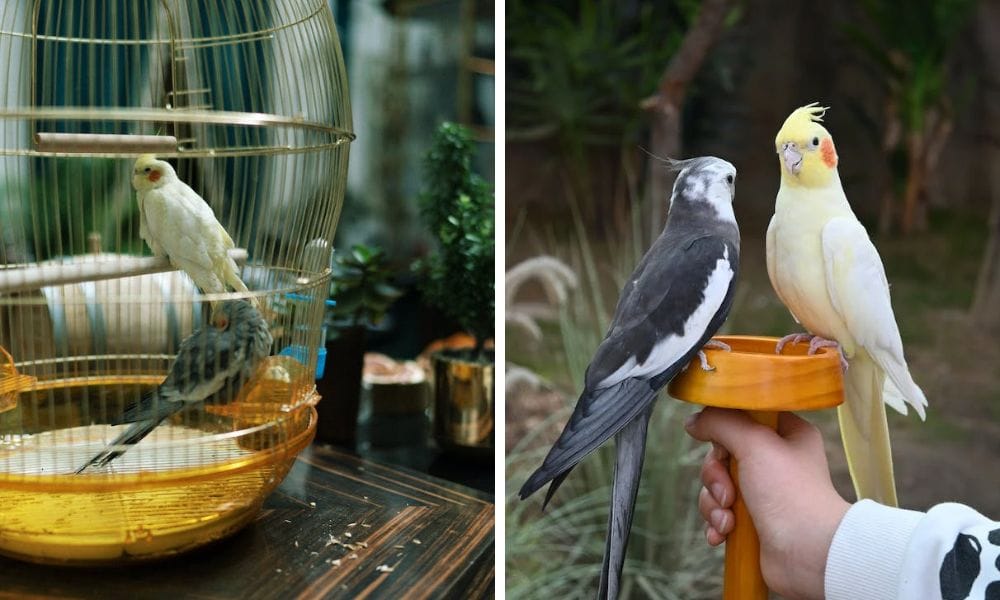
The Role of Exercise in Preventing Polyuria
Exercise is important for the overall health of your cockatiel and can help prevent polyuria. Ensure your bird has enough space to fly and explore, either within a large bird cage or in a safe, bird-proofed area of your home. Regular exercise will help keep your cockatiel's body functioning properly and reduce the risk of health issues.
Conclusion
Polyuria in whiteface yellow cockatiels can be a concerning issue, but with the right knowledge and care, it can be managed effectively. By recognizing the signs, providing a proper diet, and creating a stress-free environment, you can help ensure the health and happiness of your beloved pet bird.
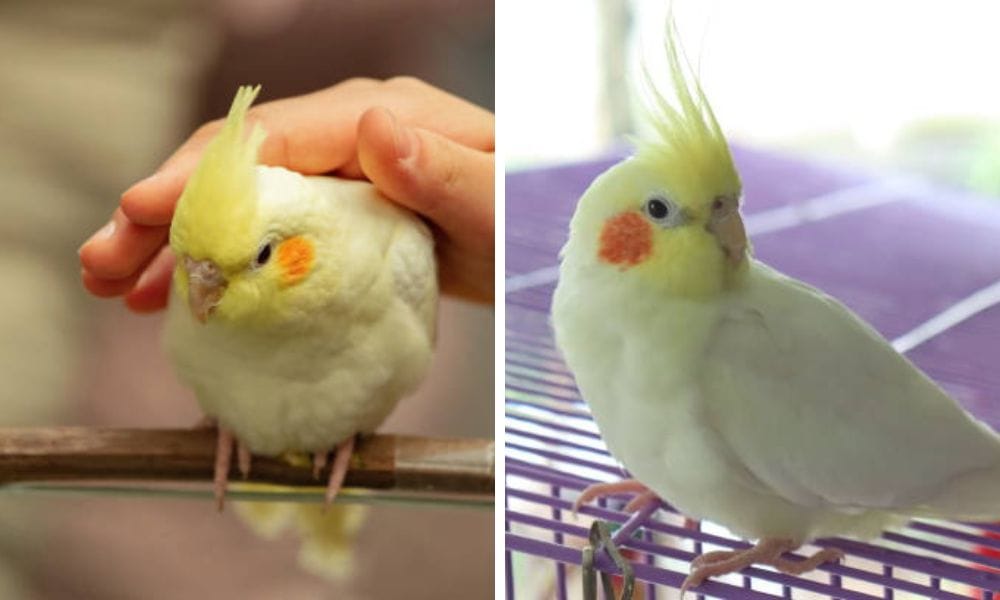
FAQ Section
Q: What should I do if I notice signs of polyuria in my cockatiel? A: If you notice signs of polyuria, such as watery droppings or increased urine volume, consult with an avian veterinarian as soon as possible for proper diagnosis and treatment.
Q: Can polyuria be prevented in cockatiels? A: Yes, polyuria can often be prevented with a balanced diet, clean living conditions, regular veterinary check-ups, and a stress-free environment for your cockatiel.
Q: Is polyuria always a sign of a serious health issue in cockatiels? A: While polyuria can be a symptom of serious health issues, it can also be caused by less severe factors such as dietary changes or stress. It's important to consult with a vet to determine the underlying cause.

